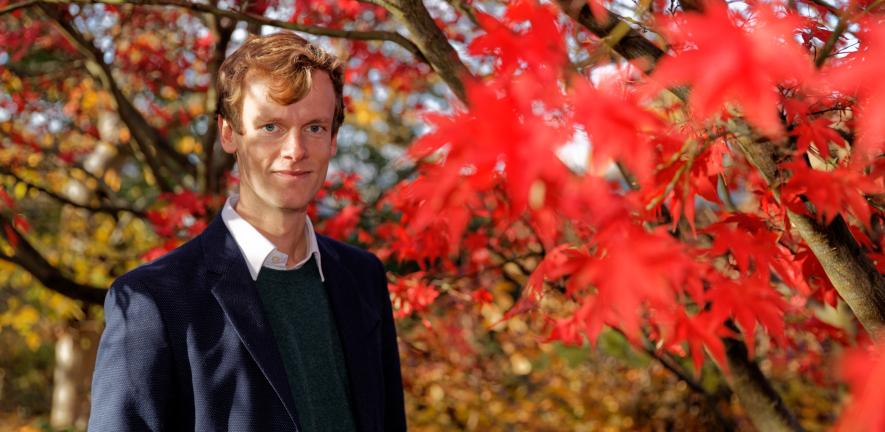
“This Future Leaders Fellowship will launch our new research program on electrochemical carbon dioxide capture,” said Forse. “Limiting global warming to 1.5o C requires the rapid development and deployment of a range of methods to mitigate greenhouse gases. We’re very excited to be developing new technologies and understanding that will enable these crucial reductions in emissions.”
Forse is focusing on electrochemical carbon capture because it has the potential to achieve a more energy-efficient capture process than traditional carbon capture. "Traditional carbon capture technology uses absorbent materials to capture carbon dioxide,” said Forse. “To collect the carbon dioxide for sequestration in the ground, you have to apply large amounts of heat energy. As an energy-efficient alternative, we will focus on the use of electricity to capture and release carbon dioxide. This means we will effectively be using the charging and discharging of batteries to absorb and collect carbon dioxide pollution."
Forse and his group specialise in the application of nuclear magnetic resonance (NMR) spectroscopy techniques to explore the functional behaviour of the new materials they are researching for carbon capture, and also for electrochemical energy storage, such as batteries. These NMR techniques are complemented by synthetic chemistry, electrochemistry and computational chemistry.
Head of Department Dr James Keeler said: "The first thing to say is many congratulations to Alex on securing this very prestigious award. These Fellowships are very competitive, and the selection process is both lengthy and tough. The Fellowship not only recognises Alex's strong trajectory to date and his ambitious plans for research but also his potential to be a leader in the field and to be an exemplary PI."
Forse has also won this year’s BRSG-NMRDG Prize for excellent contributions to magnetic resonance. This prize is given to an early career researcher to honour work representing one or more substantial contributions to the field. The prize is awarded jointly by the Institute of Physics Magnetic Resonance society and the Royal Society of Chemistry NMR discussion group.
The Future Leaders Fellowships are awarded by UK Research and Innovation to enable researchers like Forse to tackle ambitious and challenging research and innovation. Awardees receive between £400,000 and £1.5 million over an initial four years to support challenging and novel projects, support team members, pay for equipment, and help develop the Fellow’s career.

